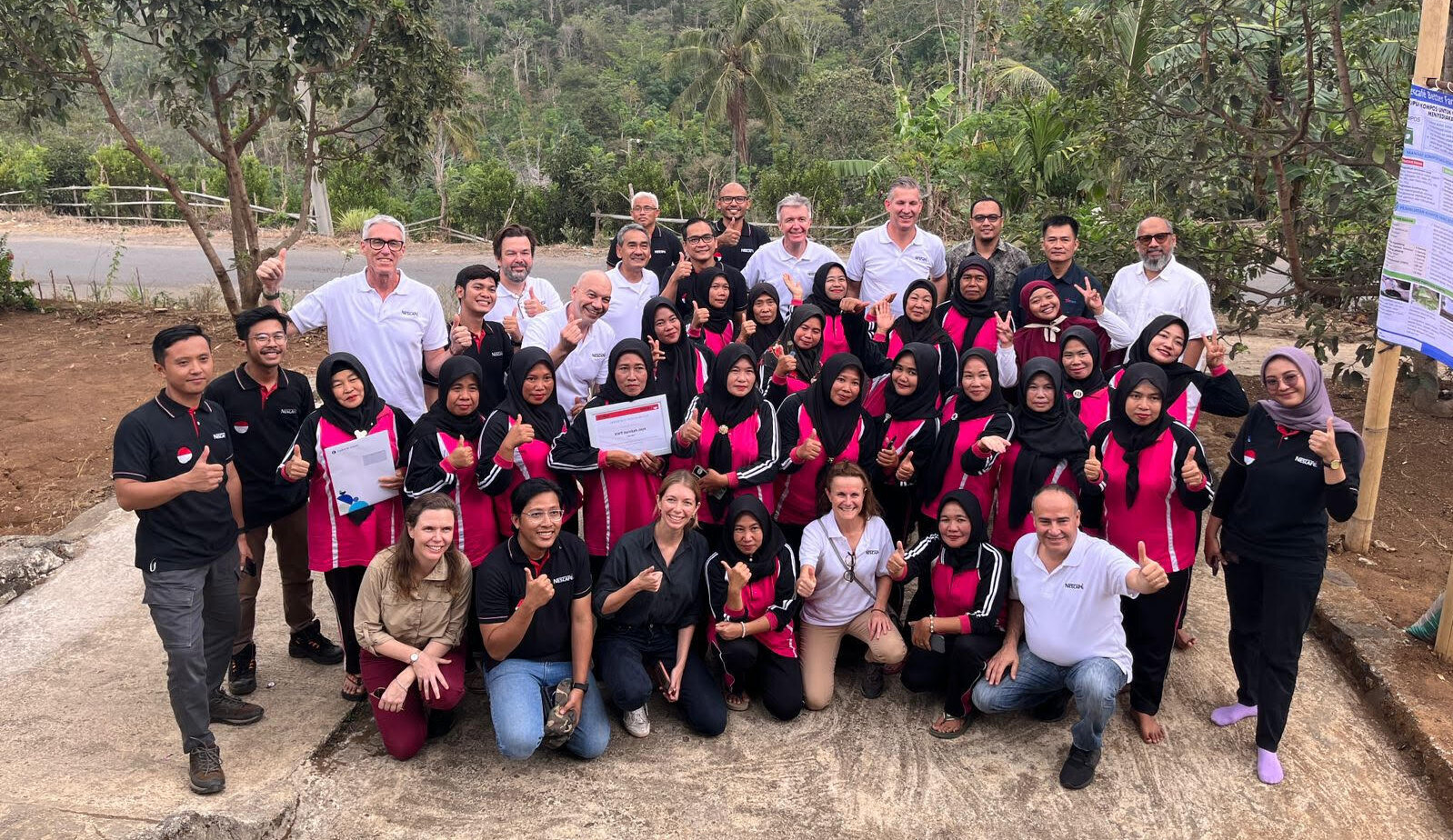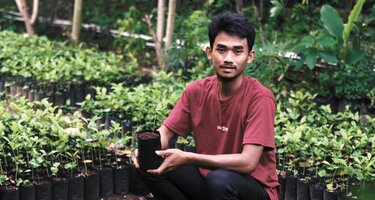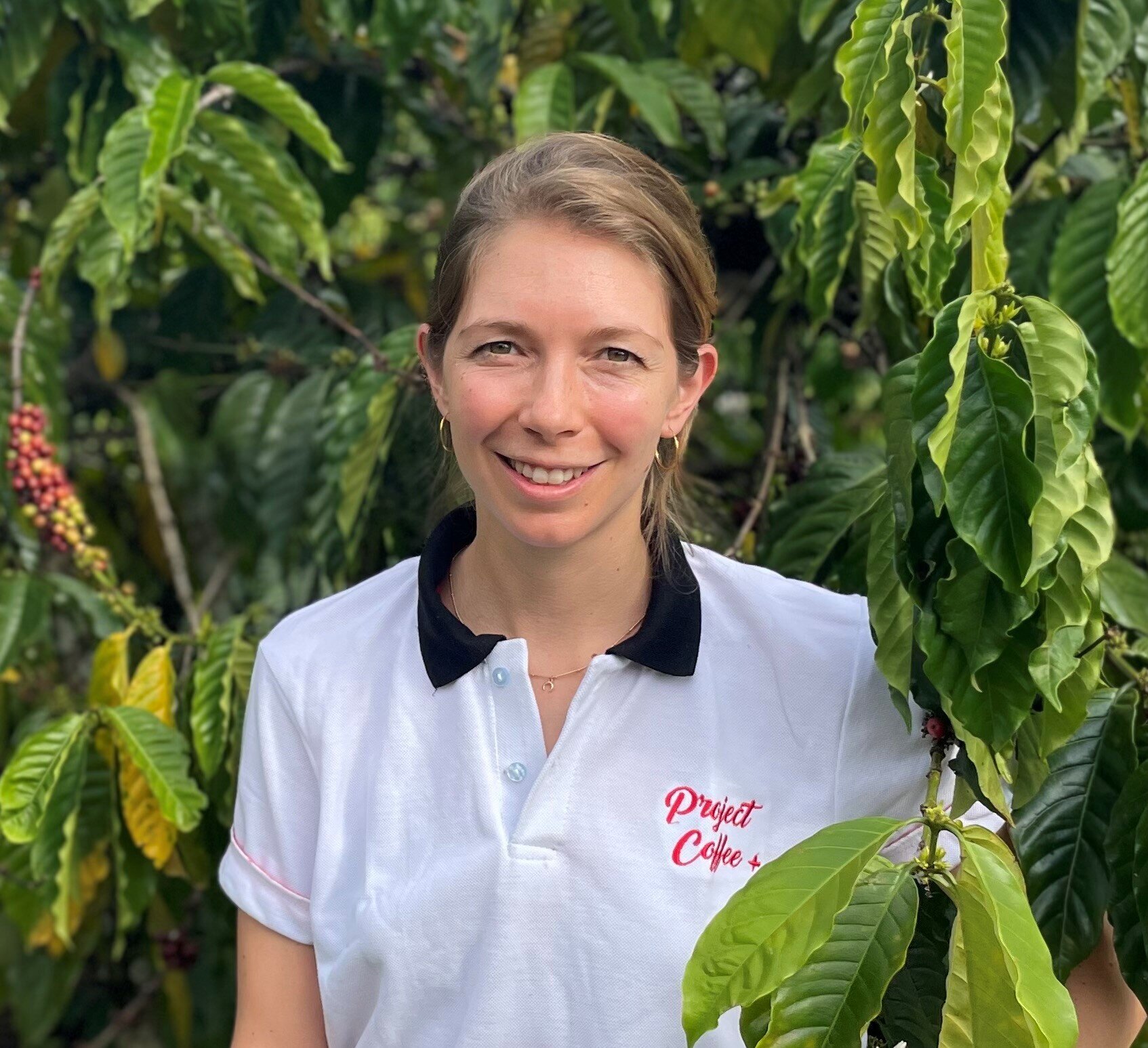News from the Coffee++ Project: Strengthening Coffee Farming Sustainably
The ‘Nescafé Plan Progress Report 2024’ was released last week. Discover how the Coffee++ Project, a collaboration with Nescafé, is transforming the livelihoods of coffee farmers across four countries. With over 17,000 farmers trained in regenerative agriculture practices throughout the last years, significant income growth, and a focus on gender-sensitive outreach, this initiative is setting new standards for farmer resilience and empowerment in the coffee industry. Dive into the remarkable results and key insights that are paving the way for a more sustainable agricultural future.

As SASI, we are working together with Nescafé to improve the livelihoods of coffee farmers through the Coffee++ project. This collaborative initiative has successfully trained over 17,000 farmers in Côte d’Ivoire, Indonesia, Thailand, and the Philippines with the Farmer Business School (FBS) methodology. This training empowers farmers to make informed decisions on farm investments, crop diversification, and financial planning, leading to notable improvements in their farming practices and income levels.
The Coffee++ Project, focuses on several key areas:
- Training in FBS and Regenerative Agriculture: Farmers receive hands-on training to adopt sustainable practices that enrich soil health and enhance biodiversity as well as financial literacy, farm financial management and diversification.
- Incentives for adopting regenerative agriculture practices: Financial incentive payments are provided to farmers who successfully adopt sustainable agricultural methods in two pilots in Cote d’Ivoire and Indonesia
- Support for Farmer Organisations: The project assists local farmer organisations and women and youth groups in their professionalisation and business development.
- Village Savings and Loans Associations: These groups help female farmers to build up savings and make productive investments in their entrepreneurial activities.
Outcomes achieved and lessons learned
We have already demonstrated significant achievements:
- Training Impact: Over 17,000 farmers have been trained in FBS and regenerative agriculture techniques.
- Record Keeping: In Indonesia, the percentage of farmers maintaining farm records surged from 11% to 90%. Record keeping is a central pillar of the FBS trainings and supports farmers to make informed decisions on their farm management.
- Income Growth: In the Philippines and Indonesia, farm revenue has more than doubled in the past six years. In the Philippines, the income from crops other than coffee has tripled in this period.
The journey towards sustainable coffee farming has provided valuable insights:
- Diversification Enhances Resilience: Farmers who diversify their income through intercropping or additional business ventures are better equipped to handle economic shocks .
- Empowering Women Farmers: Data shows that female farmers tend to implement training more consistently and achieve better results, highlighting the importance of gender-sensitive outreach strategies to boost participation among women and youth.
- Tailored Solutions are Essential: The diversity of agro-ecological and socio-economic conditions necessitates context-specific training. However, a key challenge is balancing the need for customization with scalability, particularly in areas with limited infrastructure and digital connectivity.
Innovative programs like Coffee++, are setting a standard for public-private partnership in the coffee industry. They demonstrate how large-scale collaborations can drive positive change in global supply chains that improve farmer livelihoods and protect the Environment.

